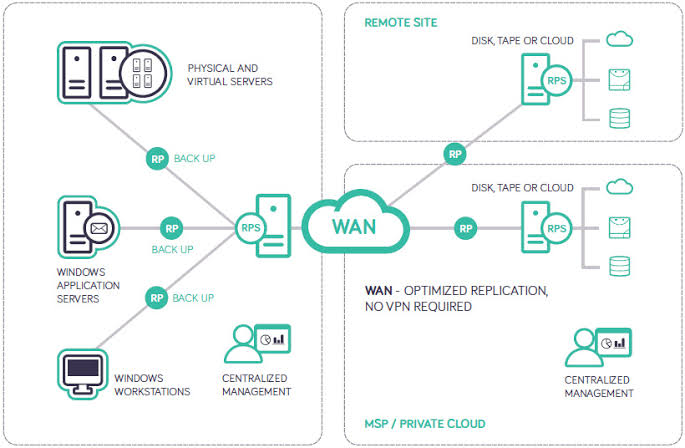Managed Backup And Disaster Recovery Services
MANAGED BACKUP SERVICE
A managed backup service utilizes a third-party managed service provider (MSP) to create and store backups of your data. There are several reasons why a business might choose to implement backups.
Firstly, some industries may require backups to be created in order to comply with regulatory practices. Using backups ensures that such data can be easily retrieved by regulatory authorities if queried. Additionally, companies may be obligated to store their backups for several years, which can consume available disk space. By using an MSP to store your backups, you can free up space on your network.
Another reason why organizations may be concerned about backing up their data is the vulnerability of computer networks. Nothing can disrupt operations faster than malfunctioning or locked files. By having backups readily available, you can seamlessly transition your network to another hardware system without missing a beat. Physical data loss can also disrupt a business's workflow. The best way to protect your company against such losses is to maintain both local and remote backups of your information.

The difference between LOCAL BACKUP and REMOTE MANAGED BACKUP?
Local backup or on-site backup is a copy of your information stored at your business premises. This type of backup has a clear advantage in providing cost-effective protection for your data. Since data can be transferred to your desktop via a wired connection, data retrieval times are relatively faster compared to web-based ones. The issue with having local backups is that they are often susceptible to the same disasters as your primary data storage device. For example, if your hard drive is stolen, your local backup is usually stolen as well.
This is where remote backup can assist business owners. By keeping a copy of your data geographically separate, you can add another layer of security to your data retrieval plan. While upload times for remote backups may be slightly longer than local ones, ultimately your data will be securely accessible when you need it most.

 English
English TÜRKÇE
TÜRKÇE